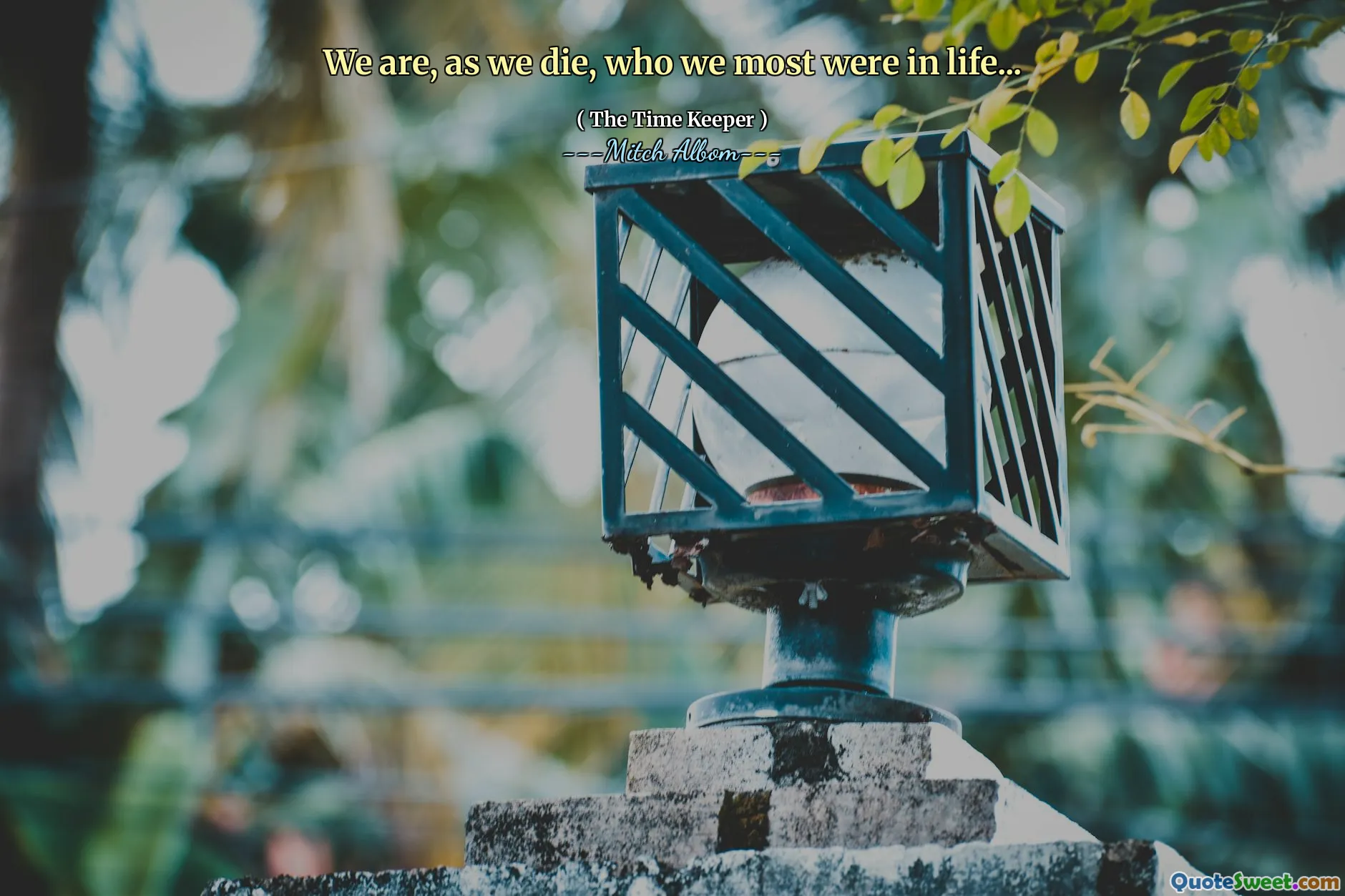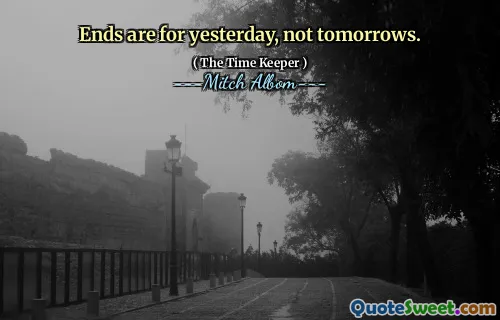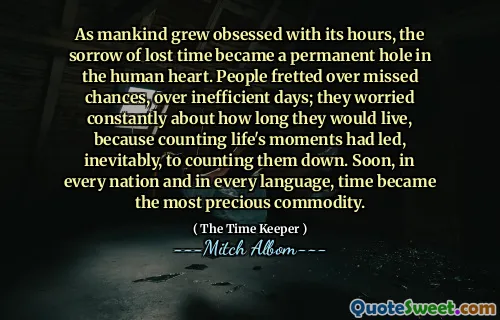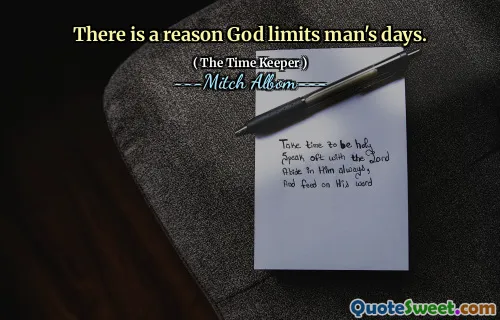
We are, as we die, who we most were in life...
Mitch Albom’s novel "The Time Keeper" explores profound themes concerning the nature of time and humanity's relationship with it. The story reflects on how our perceptions of time shape our identities and experiences. The quote, “We are, as we die, who we most were in life,” emphasizes that at the end of our lives, the essence of who we are is distilled from our experiences and choices throughout our lifetime. It suggests that our true selves are revealed when faced with mortality.
This idea encourages readers to contemplate what really matters in life. It implies that our legacies are not built on material achievements but on the emotional connections and values that define us. "The Time Keeper" invites us to reflect on how we spend our time and emphasizes the importance of living meaningfully, fostering relationships, and cherishing each moment, ultimately revealing the truth of our existence as we approach life's final chapter.











